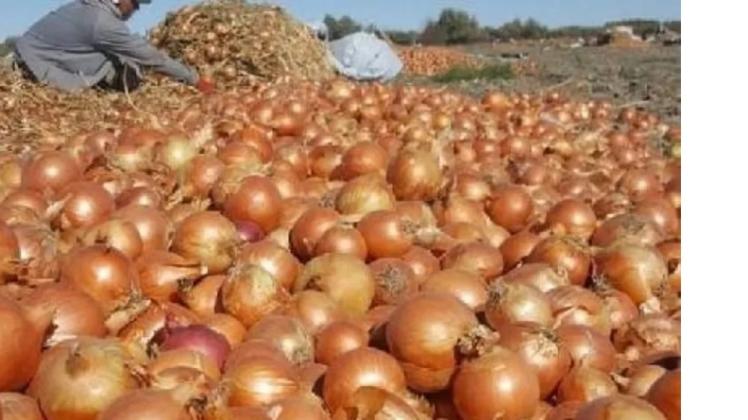Argentina (Viedma): Falling prices severely impact onion production
IDEVI producers are facing one of the worst campaigns in years. Many crops are left in the fields because "it’s not even convenient to harvest them."

Onion farming in the Lower Valley region is going through a critical season. With prices hovering around 10 to 15 pesos per kilo and between 400 and 500 pesos per bag, many producers have decided not to harvest because operating costs exceed the sales value.
Edgar Ruiz Díaz, an onion producer with the Lower Valley Development Institute (IDEVI), explained in an interview with the program "Tocá Madera" on Radio Noticias (105.5 MHz) that "since we started, onions have been worthless, and their value is getting worse every day." In this context, he noted that in many cases, the produce is destroyed or raked up directly in the field to free up space for planting other crops.
"There are some people who haven’t even harvested because it’s more expensive to uproot than the onions themselves," he said, adding that in his case, like many others, "they harrow, remove the edges, and replant corn or prepare for the next onion season."
The producer commented that the main marketing channel is Brazil, but warned that demand was low this year.
He explained that although different varieties are planted to diversify the supply, "the price is always the same." "There’s no difference between Brazil and the local market. The only thing that changes is that, if buyers come, the onions cost a little more because there are more sales," he clarified.
Regarding growing conditions, he emphasized that irrigation is key: "Water is the most important thing here. Thank God we have plenty of water in Río Negro. Otherwise, nothing will grow without irrigation." He also explained that the land is rotated with corn for two or three years to prevent disease before planting onions again.
Production is intensive and constant, as it repeats itself every year. However, there is little room for maneuver. "A buyer comes and tells you this is what it’s worth. Another comes, the same. You have to sell it like this," he stated. He added that if it’s not sold before September, "the onion will all sprout" and can no longer be sold.
Regarding the work structure, he described it as a family business with limited resources: "There are two or three of us working there, my nephew and I. That’s all." This situation exacerbates the financial difficulties, since "there are a lot of onions we don’t sell; they stay in the field, and we don’t get any money back."
Ruiz Díaz is Paraguayan and has lived in the region for over a decade. He appreciated the productive environment in the area compared to his hometown.
Finally, he mentioned that he has made onion donations to the community of San Javier, in coordination with the community leader.
Fuente:




